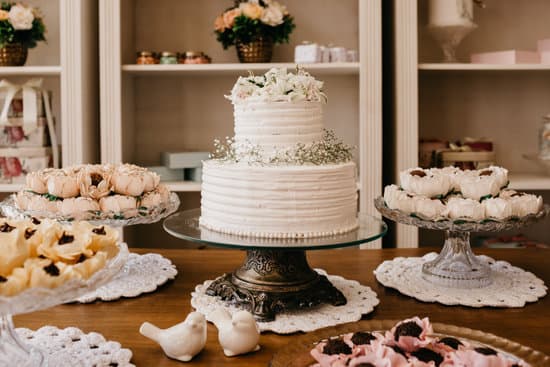When it comes to planning a wedding, one of the most important aspects is creating the perfect invitation. Your wedding invitation serves as the first impression of your special day and sets the tone for what guests can expect. From the language used to the design choice, every detail matters. In this article, we will explore the significance of wedding invitations and provide valuable tips on how to word them effectively.
Your wedding invitation is more than just a piece of paper – it’s a reflection of your love story and an opportunity to convey the excitement of your upcoming nuptials. It not only provides essential details about the event but also gives guests a glimpse into the style and theme of your wedding.
Therefore, understanding the importance of crafting the right wording is crucial in ensuring that your invitation accurately represents you as a couple and sets the stage for an unforgettable celebration.
Throughout this article, we’ll delve into various factors to consider when wording your wedding invitation, from understanding key components to choosing the right language and style. Whether you’re planning a traditional ceremony or a modern affair, we will provide insights on how to add personal touches while avoiding common mistakes.
By exploring different styles and including additional information such as RSVP details and dress code, you’ll be equipped with all the necessary tools to create the perfect wedding invitation wording that captures the essence of your special day.
The Basics
When creating a wedding invitation, it’s crucial to understand the key components that make up this important piece of stationery. The basic components of a wedding invitation include the names of the hosts, the couple getting married, the date and time of the ceremony, the location, and RSVP information.
The first important component of a wedding invitation is the names of the hosts. Traditionally, the parents of the bride are named as hosts on the invitation. However, modern weddings may have different scenarios, such as both sets of parents hosting, or even the couple hosting the wedding themselves. It’s essential to properly word this section to reflect who is hosting the event.
Next, it’s crucial to include clear and accurate details about the couple getting married. This includes their full names and can also extend to including any titles or honorifics they may have. For example, if one partner holds a professional title or is part of a religious order, it’s appropriate to include these details in the wording.
The date and time of the ceremony should be clearly indicated on the invitation. This information needs to be accurate and specific so guests know exactly when to arrive for the ceremony. Additionally, including an RSVP date with instructions for how to respond is crucial for making logistical arrangements.
| Component | Details |
|---|---|
| Names of Hosts | Properly worded based on who is hosting (bride’s parents, groom’s parents, or couple) |
| Couple’s Names | Full names with any applicable titles or honorifics included |
| Date and Time | Accurate details about when the ceremony will take place |
| RSVP Information | Clear instructions for responding by a specified date |
Setting the Tone
Choosing the right language for your wedding invitation is essential in setting the tone for your special day. The way you word your invitation will give your guests an idea of the formality and style of your wedding. Here are some tips for choosing the right language for your wedding invitation:
- Consider the formality of your wedding: If you are having a formal, black-tie event, you’ll want to use more traditional and formal language in your invitation. For a more casual or modern wedding, you can use more relaxed and informal wording.
- Reflect your personalities: Your invitation is a reflection of you as a couple, so think about the words that best represent you both. If you’re fun-loving and laid-back, consider using playful and casual language. If you’re more traditional, opt for classic wording.
- Match the venue and theme: The style of your venue and the theme of your wedding should also influence the language on your invitation. For example, if you are having a destination beach wedding, you may want to incorporate beach-themed language into your invitations.
Ultimately, the language on your wedding invitation should feel authentic to you as a couple while also conveying important details about the event. Don’t be afraid to get creative with your wording to make it uniquely yours.
When considering how to word a wedding invitation, remember that there are no strict rules – it’s ultimately about what feels right for you and effectively communicates all necessary information to your guests. With careful consideration of formality, personalization, and overall theme, you can create the perfect language for your wedding invitations that sets just the right tone for your special day.
Personal Touches
When it comes to wedding invitations, adding a personal touch can make your invitation stand out and truly represent you as a couple. Here are some ideas for customizing your wedding invitation:
- Customized monograms: Including a personalized monogram or crest that represents you and your partner can add an elegant and unique touch to your invitation.
- Handwritten details: Consider adding handwritten elements to your invitation, such as addressing the envelopes in calligraphy or including a handwritten note inside the invitation suite.
- Incorporating meaningful symbols or motifs: Whether it’s a special flower that holds significance for you both, or a symbol that represents your shared interests, incorporating meaningful symbols or motifs can add depth and personality to your invitation.
Additionally, consider customizing the wording of your invitation to reflect your personalities and the tone of your wedding. You can opt for formal language if you’re having a traditional wedding, or choose more casual wording if you’re planning a relaxed celebration.
Remember that the small details can make a big impact when it comes to customizing your wedding invitation. From choosing the right paper and printing method to selecting unique embellishments, there are countless ways to make your invitation uniquely yours. Just be sure that any customization you choose reflects the overall theme and feel of your wedding day.
Ultimately, adding personal touches to your wedding invitation allows you to create an invitation that is not only beautiful but also meaningful. It’s an opportunity to share a glimpse of your love story with those closest to you and set the tone for the celebration to come. With thoughtful customization, your wedding invitations will undoubtedly leave a lasting impression on your guests.
Dos and Don’ts
When it comes to wording a wedding invitation, there are definitely some dos and don’ts to keep in mind. Your wedding invitation sets the tone for your big day, so it’s important to get the wording just right. In this section, we will explore some common mistakes to avoid when wording a wedding invitation.
Avoiding Ambiguity
One of the most important things to remember when wording your wedding invitation is to avoid ambiguity. Be clear and specific about all the details, including the date, time, and location of the event. Avoid using vague language that could cause confusion for your guests. It’s also important to double-check all the details for accuracy before sending out your invitations.
Avoiding Overly Casual Language
While you certainly want your personality to shine through in your wedding invitation, it’s important to avoid overly casual language that may not be appropriate for such a formal occasion. Remember that your wedding is a special and formal event, so make sure your wording reflects that.
Using Proper Titles and Names
Another common mistake to avoid is failing to use proper titles and names on your wedding invitation. Make sure you include titles like “Mr.” and “Mrs.” where appropriate, and double-check the spelling of all names before finalizing your invitations.
By keeping these dos and don’ts in mind when wording your wedding invitation, you can ensure that your invitations are both elegant and informative. Remember that how you word a wedding invitation contributes greatly to the overall impression of your big day.
Different Styles
When it comes to wedding invitations, there are various styles and wording choices to consider. Your choice of wording can set the tone for your special day and showcase your personality as a couple. Traditional and modern wording are two popular styles for wedding invitations, each with its own unique appeal.
Traditional Wording
Traditional wedding invitation wording typically follows a formal structure with a touch of timeless elegance. The language used is often more formal and includes traditional etiquette. For example, traditional wording may include phrases like “request the honor of your presence” for religious ceremony invitations or “request the pleasure of your company” for non-religious ceremony invitations.
While traditional wording sets a classic tone for your wedding, it is important to ensure that it aligns with the overall theme and formality of your event. Couples who value tradition and sophistication may find traditional wording to be the perfect choice for their wedding invitations.
Modern Wording
On the other hand, modern wedding invitation wording allows couples to express their individuality and create a more personalized experience for their guests. Modern wording often includes a more casual tone while still conveying all necessary details. Couples may choose to use less formal language and incorporate their own unique style into the wording.
With modern weddings becoming increasingly popular, modern invitation wording has also seen an uptick in usage. Modern wording allows couples to break away from convention and infuse their personalities into every aspect of their special day. From quirky phrases to unconventional layouts, modern invitations give couples the freedom to make a statement that reflects who they are as individuals and as a couple.
Finding the right style of wording for your wedding invitation ultimately depends on your personal preferences, as well as the overall theme and formality of your event. Whether you opt for traditional elegance or modern flair, carefully considering the style of your wedding invitation can help set the stage for an unforgettable celebration.
Remember that regardless of whether you choose traditional or modern wording, always ensure that all essential information such as date, time, location, and RSVP details are clearly communicated in order to avoid any confusion for your guests on this joyous occasion.
Including Additional Information
When it comes to wedding invitations, including additional information such as RSVP, dress code, and registry details is crucial for ensuring that your guests are well-informed about the event. The RSVP, or “Répondez s’il vous plaît,” is a polite way of asking guests to respond whether they will be attending the wedding or not.
Including this information in the wedding invitation is essential for proper planning on the part of the couple and their families. The dress code is also an important detail to include in the invitation as it helps guests understand what attire is expected of them for the occasion.
In terms of wording, it’s important to be clear and concise when including these additional details in your wedding invitation. For RSVP information, be sure to provide a deadline for response and indicate the method by which guests should reply, whether it’s through mail, email, or phone.
When specifying the dress code, use appropriate language such as “black-tie,” “cocktail attire,” or “casual” to convey the level of formality expected. As for registry details, it’s best to provide a separate card or insert with this information rather than including it directly in the invitation.
Including additional information in your wedding invitation allows you to communicate important details to your guests while also ensuring that everything runs smoothly on your big day. By following proper etiquette and being mindful of how you word a wedding invitation, you can make sure that your guests feel well-informed and prepared for your special celebration.
| Additional Information | Tips |
|---|---|
| RSVP | Provide a deadline and response method |
| Dress Code | Use appropriate language and be clear about expectations |
| Registry Details | Include on a separate card or insert |
Conclusion
In conclusion, crafting the perfect wording for your wedding invitation is an essential part of setting the tone for your special day. By understanding the key components, choosing the right language, and adding personal touches, you can create an invitation that reflects your style as a couple. It’s important to avoid common mistakes and consider both traditional and modern wording styles to ensure that your invitation is both timeless and unique.
When it comes to including additional information on your wedding invitation, it’s important to strike a balance between providing necessary details and overwhelming your guests with too much information. Including RSVP, dress code, and registry details in a clear and concise manner will help your guests feel informed without being bombarded with unnecessary information.
Ultimately, the wording of your wedding invitation should reflect the love and joy that you both share as a couple. It’s an opportunity to express yourselves and invite your loved ones to celebrate this special moment with you. With careful consideration and attention to detail, you can create a wedding invitation that sets the perfect tone for your big day – one that you’ll cherish as a keepsake for years to come.
Frequently Asked Questions
What Is the Correct Wording for a Wedding Invitation?
The wording for a wedding invitation typically includes the names of the bride and groom, date and time of the wedding, location, and RSVP details. It is important to be clear, concise, and to include all necessary information for guests.
What Is an Example Sentence for Wedding Invitation?
“Please join us in celebrating the marriage of [bride’s name] and [groom’s name] on [date] at [time] at [venue]. We would be honored by your presence on our special day.”
How Do You Write a Wedding Invitation Message?
When writing a wedding invitation message, it is important to start with a warm greeting, followed by the names of the bride and groom. Then include the date, time, and venue of the wedding.
It is also crucial to provide RSVP details and any additional information or requests for guests. The tone should be polite and reflect the couple’s personality.

I have been involved in marriages for over 20 years helping couples and singles understand more about them.





